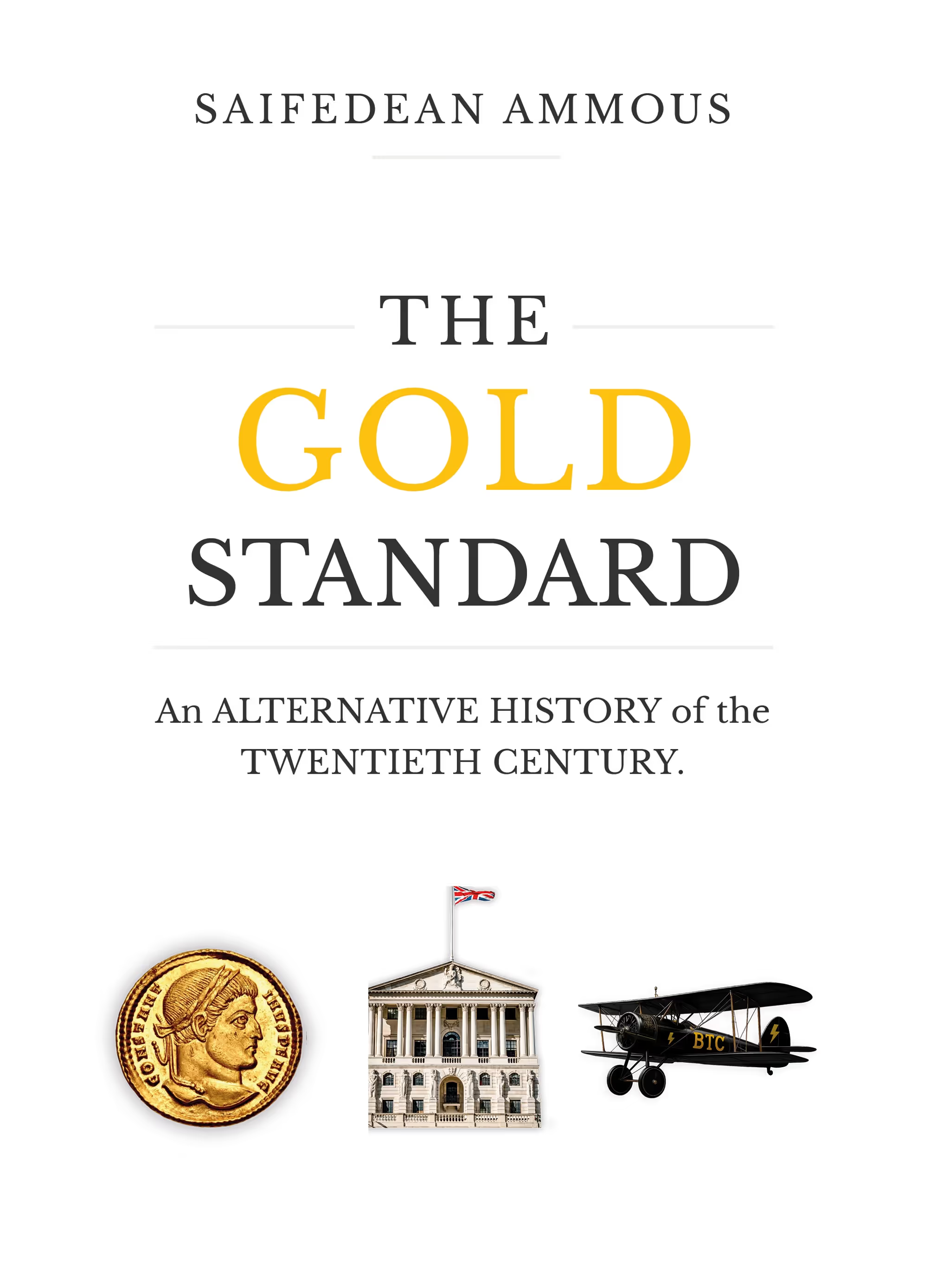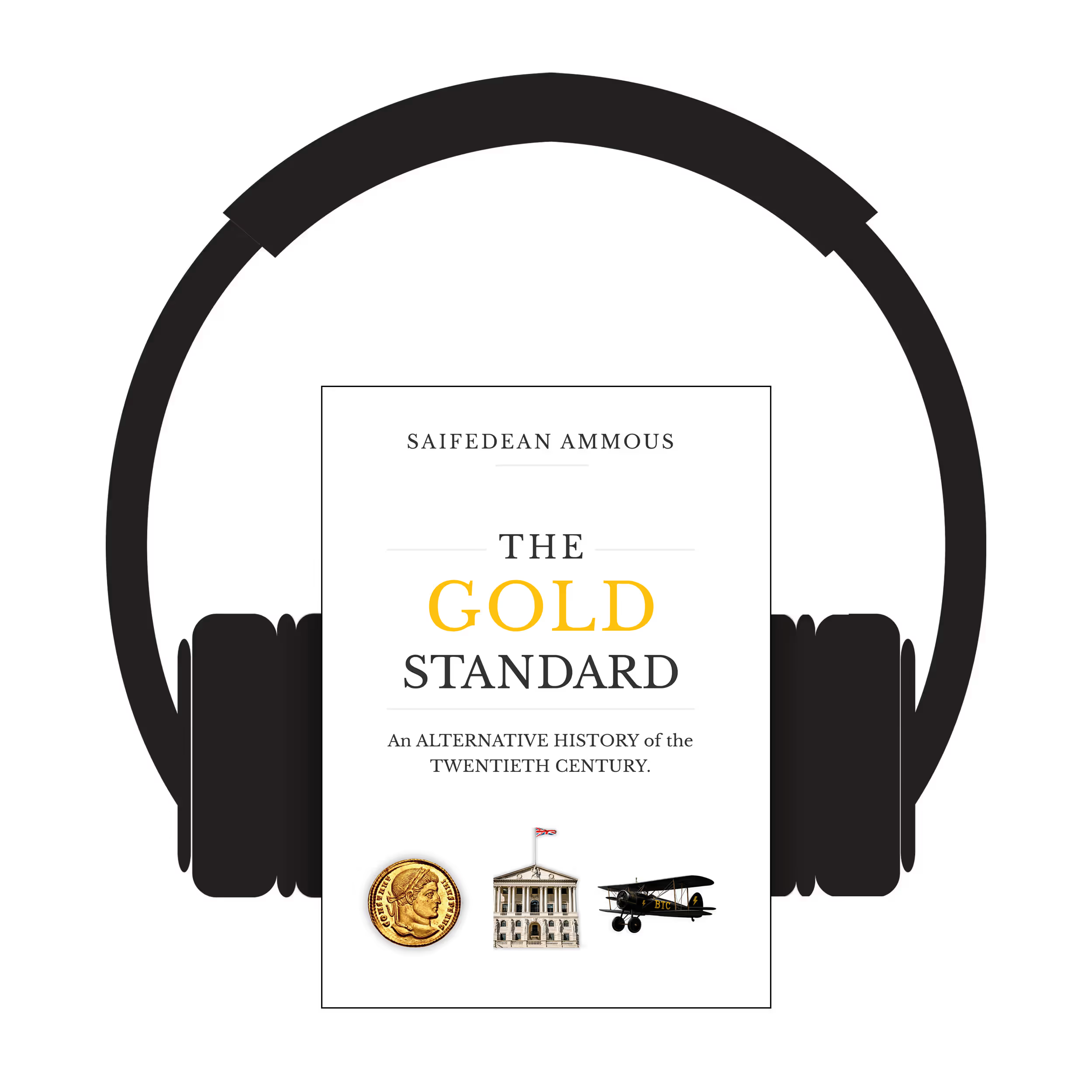
What would the twentieth century have looked like on a gold standard? What would have happened to the state without its money printer? What would have happened to prices, wages, living standards, capital markets, politics, energy production, technology, and education?
In The Gold Standard, internationally bestselling author Saifedean Ammous answers these questions with a unique alternative history that is one-third history, one-third novel, and one-third economic analysis. In 1911, French aviation pioneer Louis Blériot partners with the Wright brothers to build the Blériot Transport Corporation (BTC), an airplane-based decentralized peer-to-peer gold-settlement network.
Dismissed by economists and the press as a doomed eccentricity, BTC alters world history in 1915 when it offers Europeans the chance to escape central bank war inflation by exporting their wealth to neutral countries, triggering a global financial panic that bankrupts the world’s major central banks and destroys their currencies. The World War comes to an abrupt end, and the fiat money experiment is strangled in its crib.
A new world order emerges around a free-market decentralized gold standard, and an entirely different twentieth century unfolds. Hard-money savings make capital plentiful and cheap, accelerating technological progress and increasing energy production. The death of central banking and the emergence of a free market in banking force banks to become safer and more responsible. Governments become accountable service providers, while their citizens become customers who expect, and get, better service at a lower cost year after year. Much more unfolds in this gripping, serious, and provocative thought experiment written in Ammous’s trademark engaging style.






